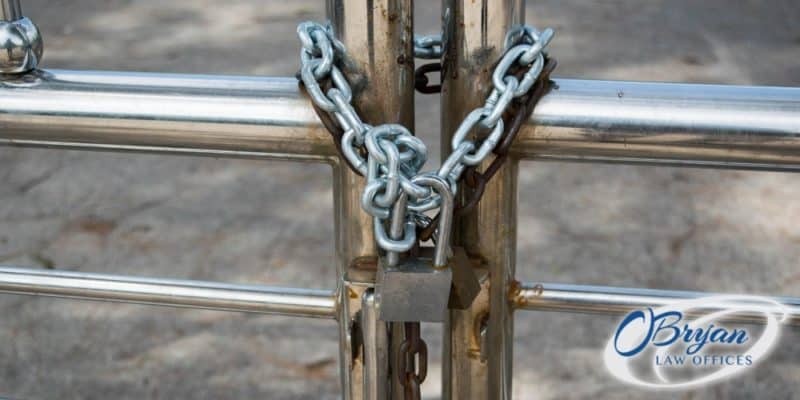The stress of falling behind on car payments is immense. The fear of repossession looms large, especially when your vehicle is essential for daily life – getting to work, taking kids to school, and managing household errands. You understand that your car acts as collateral for the loan, and default can lead to its repossession. But what if the repo company can’t locate your vehicle? Does hiding your car offer a solution, or does it just delay the inevitable and potentially worsen your situation?
This article delves into what happens when the repo man can’t find your car. We’ll explore the tactics repo companies use, the legal boundaries they must adhere to, and most importantly, what your options are when facing vehicle repossession. Understanding your rights and the potential consequences is crucial in navigating this challenging financial situation.
Repo Companies: What They Can and Cannot Do
Repo agents are tasked with reclaiming vehicles when borrowers default on their loans. They operate within legal boundaries, although these can sometimes feel intrusive. It’s important to know what they are permitted to do on your property and what actions are considered illegal.
Repo agents can generally:
- Enter your property: They are typically allowed to come onto your property to locate and repossess the vehicle. This includes your driveway, open garages, and unenclosed areas around your home.
- Look for the car: They can search areas where your car might be parked, even if it’s not in plain sight from the street.
- Track your vehicle: Many modern vehicles have GPS tracking devices, and loan agreements often permit lenders to access this information to locate the car.
- Repossess from public property: If your car is parked on a public street or in a publicly accessible parking lot, it’s fair game for repossession.
However, repo agents cannot:
- Breach the peace: This is a critical limitation. Repo agents cannot use force, threats, or intimidation to repossess your vehicle. Breaching the peace can include physical confrontations, breaking locks, entering locked garages, or causing disturbances.
- Damage other property: In their attempt to reach your car, they cannot damage other vehicles or property.
- Enter a closed garage: They cannot break into a locked or closed garage to seize your car without a court order.
- Misrepresent themselves: They must be truthful about their purpose and cannot pretend to be law enforcement officers.
What Happens If You Hide Your Car from the Repo Man?
So, what if you decide to hide your car in an attempt to prevent repossession? While it might seem like a temporary solution, it’s important to understand the potential consequences.
Initially, if the repo agent can’t find your car, it might buy you some time. However, this is rarely a long-term solution and can actually make your situation worse. Here’s what typically happens:
- The lender will escalate their efforts: Repo companies are persistent. If they can’t find your car at your home or usual locations, they will likely expand their search. They may use more sophisticated tracking methods, monitor locations you frequent, and even investigate addresses associated with your family and friends.
- Replevin – A Court Order: If hiding your car becomes a consistent obstacle, your lender can pursue a legal remedy called “replevin.” Replevin is a court order that compels you to surrender the vehicle. This order gives the repo company the legal authority to seize the car.
- Court Involvement: To obtain a replevin order, the lender must go to court and demonstrate that they have a legal right to repossess the vehicle (due to your loan default) and that you are preventing them from doing so. You will be notified of the replevin action and may have the opportunity to appear in court to dispute it.
- Increased Costs: Pursuing a replevin action involves legal fees and court costs, which are typically added to your outstanding debt. Hiding your car, therefore, can end up increasing the total amount you owe.
- No Element of Surprise: Unlike a standard repossession where the repo agent might show up unannounced, with a replevin order, you will be aware that the lender is actively seeking to seize your car through legal means.
Is Hiding Your Car a Good Strategy?
In most cases, hiding your car from the repo man is not a good long-term strategy. While it might offer temporary relief from the immediate anxiety of repossession, it comes with significant downsides:
- It delays, doesn’t solve the problem: Hiding your car doesn’t address the underlying issue of your loan default. The debt remains, and the lender will continue to pursue collection efforts.
- Potential legal action (Replevin): As mentioned, lenders can and will seek replevin orders, making the repossession legally enforced and potentially more stressful.
- Increased financial burden: Legal fees and court costs associated with replevin add to your debt.
- Damaged Credit: Regardless of whether you hide the car or not, the repossession will negatively impact your credit score. Hiding the car doesn’t change this outcome.
- Stress and Uncertainty: Constantly hiding your car and worrying about it being found creates ongoing stress and anxiety.
Better Alternatives to Hiding Your Car
Instead of hiding your car, which is usually a temporary and ultimately detrimental approach, consider these more constructive alternatives:
-
Communicate with Your Lender: The first and most crucial step is to contact your lender as soon as you anticipate difficulty making payments. Lenders may be willing to work with you, especially if you have a history of on-time payments. Options they might consider include:
- Loan Modification: Restructuring your loan terms to lower your monthly payments.
- Deferment or Forbearance: Temporarily postponing payments, although interest may still accrue.
- Payment Plan: Arranging a structured plan to catch up on missed payments.
-
Voluntary Repossession (Surrender): If you know you cannot afford the car and don’t see your financial situation improving, voluntary repossession might be a less damaging option than waiting for the repo man to find it or for a replevin order. While still negative, it can sometimes avoid additional fees associated with involuntary repossession.
-
Bankruptcy: Filing for bankruptcy, either Chapter 7 or Chapter 13, can provide significant relief from car repossession.
- Automatic Stay: Bankruptcy immediately triggers an “automatic stay,” which legally stops repossession efforts, creditor harassment, and collection actions.
- Chapter 13 Bankruptcy: Allows you to reorganize your debts and create a repayment plan. You may be able to keep your car by catching up on missed payments and continuing to make payments under the Chapter 13 plan. Sometimes, the loan terms can even be modified in bankruptcy.
- Chapter 7 Bankruptcy: May allow you to discharge (eliminate) the car loan debt. However, if you want to keep the car, you’ll typically need to reaffirm the debt (agree to continue paying it). If you don’t reaffirm and can’t exempt the car’s value, you may have to surrender it.
-
Refinancing: If you have decent credit, explore refinancing your car loan. Refinancing can potentially get you a lower interest rate or more manageable monthly payments.
Consequences of Car Repossession
Whether the repo man finds your car easily or you hide it for a while, the consequences of repossession are generally the same:
- Loss of Vehicle: You will lose possession of your car, which can significantly impact your ability to work, manage family responsibilities, and maintain your daily life.
- Damaged Credit Score: Repossession severely damages your credit score, making it harder and more expensive to obtain credit in the future, including for future car loans, mortgages, or even credit cards.
- Deficiency Balance: After repossession, the lender will sell your car at auction. If the auction price doesn’t cover the outstanding loan balance, plus repossession and sale expenses, you will be responsible for paying the “deficiency balance.”
- Continued Debt: You could end up owing money on a car you no longer possess. If you don’t pay the deficiency balance, the lender can pursue collection actions, such as wage garnishment or lawsuits.
Take Proactive Steps to Address Car Repossession
Facing potential car repossession is a stressful experience, but it’s crucial to remember that you have options. Hiding your car is rarely an effective solution. Instead, focus on proactive strategies:
- Open Communication: Talk to your lender immediately.
- Explore Alternatives: Consider loan modification, refinancing, voluntary surrender, or bankruptcy.
- Seek Professional Advice: Consult with a financial advisor or bankruptcy attorney to understand your best course of action based on your specific financial situation.
Taking proactive steps and seeking help can lead to more favorable outcomes than simply trying to hide your car and avoid the repo man. Understanding your rights and options is the first step towards navigating this challenging situation and working towards a financial solution.


